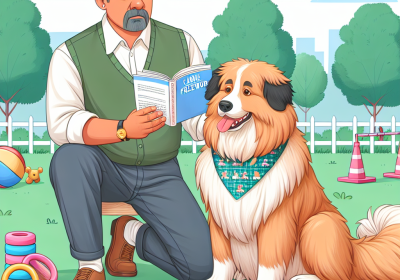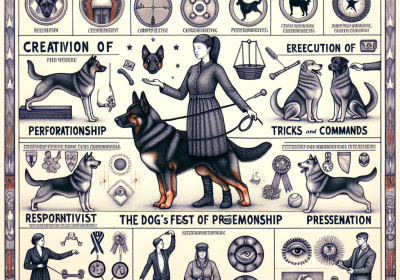Canine Freework Competitions
Table of Contents
- Benefits Of Canine Freework Competitions For Dogs And Owners
- Training Tips For Success In Canine Freework Competitions
- Understanding The Rules And Scoring In Canine Freework Competitions
Canine Freework Competitions are structured events designed to showcase the natural abilities and skills of dogs through a variety of tasks and challenges. These competitions emphasize the bond between handler and dog, encouraging teamwork, communication, and mutual trust. Participants engage in activities that test agility, obedience, scent detection, and problem-solving abilities, often tailored to highlight the unique strengths of different breeds. The goal is to provide a stimulating and enjoyable experience for both dogs and their handlers, promoting physical and mental well-being while fostering a deeper connection between them.
Benefits Of Canine Freework Competitions For Dogs And Owners
Canine Freework competitions have emerged as a popular and beneficial activity for both dogs and their owners. These events, which emphasize the natural abilities and instincts of dogs, offer a range of advantages that extend beyond mere entertainment. By participating in these competitions, dogs and their owners can experience a multitude of physical, mental, and emotional benefits.
One of the primary benefits of Canine Freework competitions is the enhancement of physical health for dogs. These events often involve a variety of activities that require agility, strength, and endurance. As dogs navigate through obstacle courses, perform tricks, and engage in other physical tasks, they receive a comprehensive workout that helps maintain their overall fitness. Regular participation in such activities can lead to improved cardiovascular health, stronger muscles, and better coordination. Consequently, dogs that engage in Canine Freework are less likely to suffer from obesity and related health issues.
In addition to physical health, Canine Freework competitions also contribute significantly to the mental well-being of dogs. These events challenge dogs to think critically and solve problems, which stimulates their cognitive functions. The mental stimulation provided by these activities can help prevent boredom and reduce the likelihood of behavioral problems such as excessive barking or destructive chewing. Furthermore, the structured environment of competitions encourages dogs to focus and follow commands, thereby enhancing their obedience and discipline.
The benefits of Canine Freework competitions are not limited to dogs alone; owners also stand to gain from participating in these events. One notable advantage is the strengthening of the bond between dogs and their owners. Training for and competing in Canine Freework requires a high level of communication and cooperation. As owners work closely with their dogs to master various tasks, they develop a deeper understanding of their pets’ behaviors and needs. This enhanced bond can lead to a more harmonious and fulfilling relationship.
Moreover, Canine Freework competitions provide owners with a sense of accomplishment and pride. Watching their dogs perform well in competitions can be incredibly rewarding and can boost owners’ confidence in their training abilities. Additionally, these events offer a platform for social interaction, allowing owners to connect with other dog enthusiasts. Sharing experiences, tips, and advice with like-minded individuals can create a supportive community that fosters personal growth and development.
Another significant benefit of Canine Freework competitions is the positive impact on dogs’ socialization skills. These events expose dogs to a variety of environments, people, and other animals, which can help them become more adaptable and well-adjusted. Socialization is crucial for preventing anxiety and aggression, and Canine Freework competitions provide an ideal setting for dogs to practice and refine their social skills. As a result, dogs that participate in these events are often more confident and better equipped to handle new situations.
In conclusion, Canine Freework competitions offer a wealth of benefits for both dogs and their owners. By promoting physical fitness, mental stimulation, and socialization, these events contribute to the overall well-being of dogs. At the same time, they provide owners with opportunities to strengthen their bond with their pets, gain a sense of accomplishment, and connect with a supportive community. As the popularity of Canine Freework continues to grow, it is clear that these competitions play a valuable role in enhancing the lives of dogs and their owners alike.
Training Tips For Success In Canine Freework Competitions
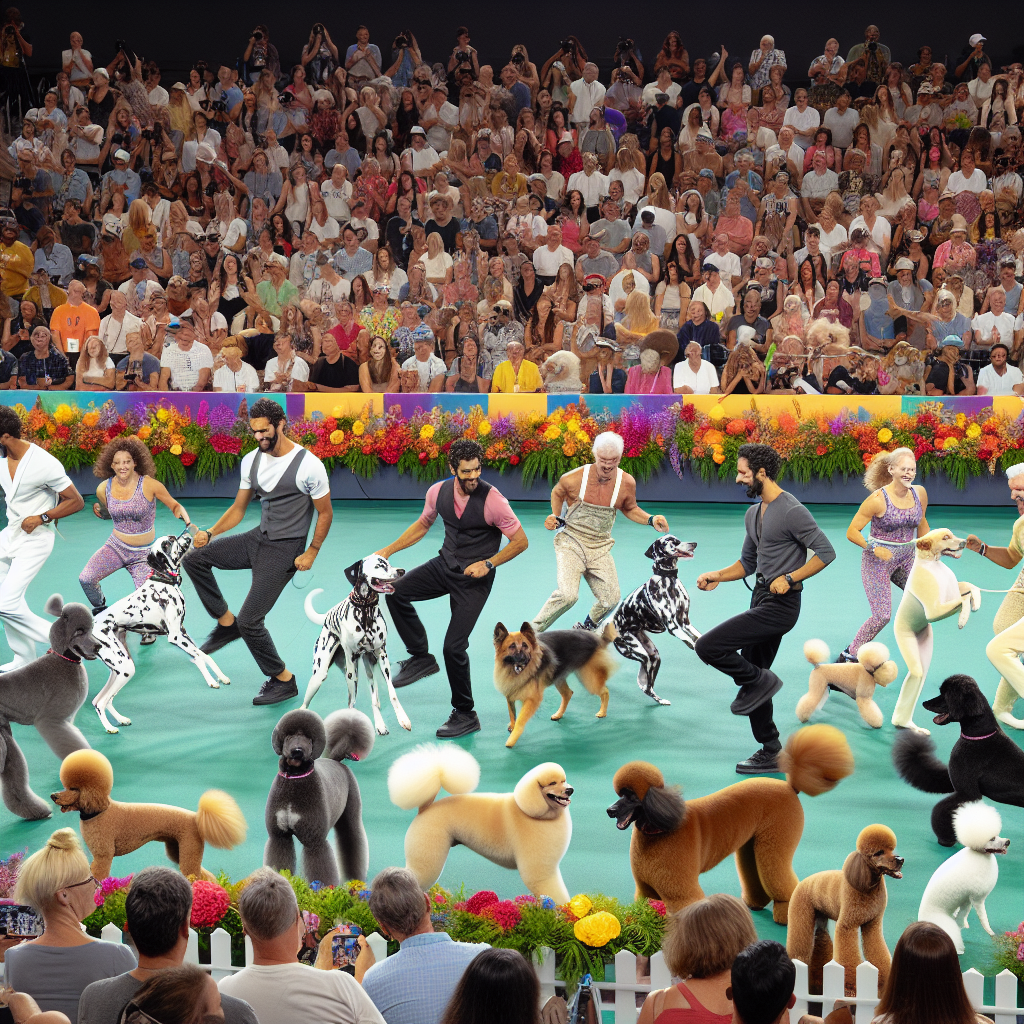
Training for success in canine freework competitions requires a blend of strategic planning, consistent practice, and a deep understanding of your dog’s unique abilities and temperament. To begin with, it is essential to establish a strong foundation of basic obedience skills. Commands such as sit, stay, come, and heel are fundamental, as they form the basis upon which more complex routines are built. Ensuring that your dog responds reliably to these commands in various environments will provide a solid starting point for more advanced training.
Once basic obedience is well-established, the next step involves introducing your dog to the specific elements of freework. This includes teaching them to navigate obstacles, perform tricks, and execute precise movements in response to your cues. It is beneficial to break down each component of the routine into smaller, manageable tasks. For instance, if the routine involves jumping through a hoop, start by familiarizing your dog with the hoop itself. Gradually increase the difficulty by raising the height of the hoop and incorporating it into a sequence of actions.
Consistency is key in training for canine freework competitions. Regular practice sessions help reinforce learned behaviors and build muscle memory. However, it is equally important to keep these sessions varied and engaging to prevent your dog from becoming bored or frustrated. Incorporating play and rewards, such as treats or praise, can maintain your dog’s enthusiasm and motivation. Additionally, varying the training environment can help your dog become adaptable and confident in different settings, which is crucial for competition scenarios.
Another critical aspect of training is understanding and working with your dog’s natural instincts and preferences. Each dog has its own strengths and weaknesses, and recognizing these can help tailor the training process to suit their individual needs. For example, a dog with a high prey drive may excel in tasks that involve chasing or retrieving, while a more agile dog might perform better in activities that require quick, precise movements. By leveraging your dog’s natural abilities, you can create a routine that showcases their strengths and minimizes their weaknesses.
Moreover, building a strong bond with your dog is fundamental to achieving success in freework competitions. Trust and communication between you and your dog are paramount, as they ensure that your dog is attentive and responsive to your cues. Spending quality time together outside of training sessions can strengthen this bond and improve overall performance. Activities such as hiking, playing fetch, or simply relaxing together can enhance your relationship and make training more enjoyable for both of you.
In addition to physical training, mental stimulation is equally important. Freework routines often require dogs to think critically and solve problems on the fly. Incorporating puzzle toys, scent work, and other brain games into your training regimen can help sharpen your dog’s cognitive skills and improve their ability to focus during competitions.
Finally, it is essential to maintain a positive and patient attitude throughout the training process. Progress may be slow at times, and setbacks are inevitable. However, remaining calm and encouraging will help your dog stay confident and motivated. Celebrating small victories and acknowledging your dog’s efforts can foster a positive training environment and lead to greater success in the long run.
In conclusion, training for canine freework competitions involves a combination of basic obedience, specialized skills, consistency, understanding your dog’s unique traits, building a strong bond, providing mental stimulation, and maintaining a positive attitude. By following these tips, you can enhance your dog’s performance and increase your chances of success in the competitive arena.
Understanding The Rules And Scoring In Canine Freework Competitions
Canine Freework competitions have gained significant popularity in recent years, captivating dog enthusiasts and trainers alike. These events showcase the remarkable bond between dogs and their handlers, emphasizing creativity, precision, and mutual understanding. To fully appreciate the intricacies of these competitions, it is essential to understand the rules and scoring mechanisms that govern them.
At the heart of Canine Freework competitions lies the principle of free expression. Handlers are encouraged to design routines that highlight their dog’s unique abilities and personality. However, this freedom is balanced by a structured framework that ensures fairness and consistency. Competitors must adhere to specific guidelines regarding routine length, music selection, and permissible props. Typically, routines last between two to four minutes, allowing ample time for dogs to demonstrate a range of skills without overstaying their welcome.
The choice of music plays a crucial role in Canine Freework, as it sets the tone and rhythm for the performance. Handlers must select tracks that complement their dog’s movements and enhance the overall presentation. While there are no strict genre restrictions, the music should be appropriate and free from offensive content. Additionally, the volume must be adjusted to a level that does not startle or distress the dog, ensuring a positive experience for both participants and spectators.
Props, when used effectively, can add an extra layer of creativity to a routine. However, their use is subject to certain limitations. Props should be safe, non-distracting, and manageable for the dog. Excessive reliance on props may detract from the dog’s natural abilities, so handlers are encouraged to strike a balance between prop usage and showcasing their dog’s inherent skills.
Scoring in Canine Freework competitions is multifaceted, encompassing various aspects of the performance. Judges evaluate routines based on criteria such as technical execution, creativity, and overall presentation. Technical execution refers to the precision and accuracy of the dog’s movements, including obedience commands, tricks, and transitions. Judges look for seamless coordination between the handler and the dog, rewarding routines that demonstrate a high level of training and discipline.
Creativity is another vital component of the scoring process. Handlers are encouraged to think outside the box, incorporating innovative elements that set their routines apart. This could involve unique choreography, unexpected tricks, or imaginative use of props. Creativity scores reflect the handler’s ability to captivate the audience and judges with a fresh and engaging performance.
Overall presentation encompasses the harmony between the dog and handler, as well as the routine’s entertainment value. Judges assess the fluidity of movements, the dog’s enthusiasm, and the handler’s ability to maintain a positive and supportive demeanor throughout the performance. A well-executed routine should leave a lasting impression, evoking a sense of joy and admiration from the audience.
To ensure transparency and fairness, Canine Freework competitions often employ a panel of judges with diverse expertise. This helps mitigate individual biases and provides a well-rounded evaluation of each routine. Scores from multiple judges are typically averaged to determine the final ranking, with the highest-scoring routines earning top honors.
In conclusion, understanding the rules and scoring in Canine Freework competitions is essential for both participants and spectators. The structured yet flexible framework allows for a wide range of creative expression while maintaining fairness and consistency. By appreciating the nuances of technical execution, creativity, and overall presentation, one can gain a deeper appreciation for the skill and dedication required to excel in this captivating canine sport.
Read more about Canine Freework
Canine Freework Competitions
The Ins and Outs of Canine Freework Competitions
Popular Canine Freework Competitions Around the World
How to Train for Canine Freework Competitions
Judging Criteria for Canine Freework Competitions
Tips for First-Time Competitors in Canine Freework


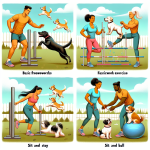

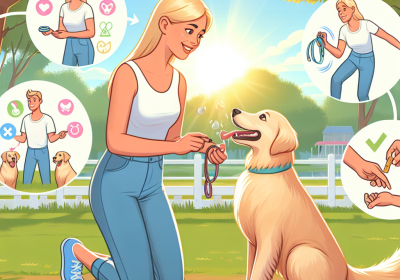
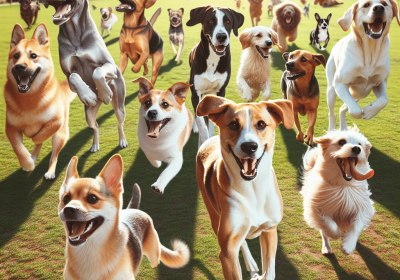
![The Dog Podcast Uncovers Startling Truths About What We Feed Our Dogs [Press Release]](https://theblogwave.com.au/wp-content/uploads/2024/08/canine-food-scaled-400x280.jpg)
